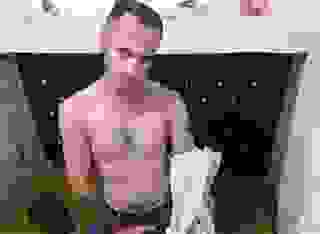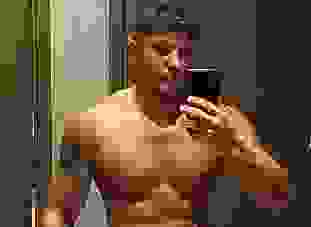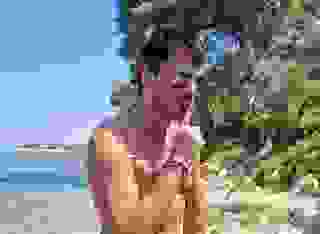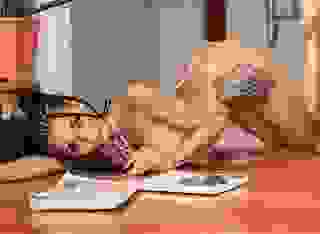- Gay Male
- Journey of Rick Heiden Ch. 33-34
Note: You can change font size, font face, and turn on dark mode by clicking the "A" icon tab in the Story Info Box.
You can temporarily switch back to a Classic Literotica® experience during our ongoing public Beta testing. Please consider leaving feedback on issues you experience or suggest improvements.
Click hereAll Rights Reserved © 2019, Rick Haydn Horst
This is a work of fiction. Names, characters, businesses, places, events, locales, and incidents are either the products of the author's imagination or used in a fictitious manner. Any resemblance to actual persons, living or dead, or actual events is purely coincidental.
CHAPTER THIRTY-THREE
They built the Primorium, a mausoleum, as a towering monument to long-dead Primes. The neoclassical edifice of magnificent proportions gave David a favorite place to visit as a teenager. He enjoyed the quiet peace that seemed to fill its halls lined in statuary whose ornate pedestals encompassed human remains. He didn't see it as morbid, but it seemed a tad macabre to me.
We met Magnar on the sixth floor, where the more recent- Well...one might say recent, but Amaré served as Prime for nearly a thousand jears, so they entombed the previous Prime that far back in history. The building had ten floors with space for 30 tombs on each floor. The sixth floor held the last 13 tombs, and few people ventured that high into the building. Magnar guessed we would meet in front of Aurum's tomb. He waited a few minutes before we arrived. He wore his traditional Trust uniform, his sword on his back. He got to business the instant he saw us.
"As of yesterday," said Magnar, "either Pearce or the Aggregate can access the portals on Earth."
"We should inform the Trust," said David. "And we should remain on high alert."
"Consider it done."
"David," I said, "if Pearce told the Americans about the diamond. Why then didn't Major Palmer in Japan understand how your presence in the circle made the portal appear?"
"I hadn't thought of that," said David. "He could have told him after the incident in Japan, but if he's a traitor, why wait on something that important?"
"It sounds as if Pearce has an agenda," said Magnar. "However, that may make him no less a traitor."
"I think Pearce has had an agenda from the beginning," said David.
The conversation paused while they both watched me study the unusual statue of Aurum before us. If it represented an accurate depiction, he didn't look like most of the others. All the figures except the last four showed the person at the zenith of their lives. They depicted Aurum and the three that followed as older, in perhaps their late nineties. A strange shift had occurred.
A smile of amusement bloomed on Magnar's face. "Aurum's secret," he whispered to me, shaking his head. "Please, tell me you won't put any credence to that."
"I just might, Magnar," I whispered. "Why did they make him so old?"
David looked to Magnar for the answer as well. "And those three," said David. "They're just the same."
"I don't know," Magnar whispered. "I know Aurum created the Forever Young enhancement, but neither he nor those three received it."
"None of the other Primes could have received it either," I said, "but they depicted the rest as young and vital. This sudden discordant change strikes me as obstinance."
"I'm sorry, I don't have an answer to that," said Magnar. "I understand Aurum's secret is enticing, old mysteries usually are, whether real or legendary. I should tell you, however, that Primes hold many secrets, so I see nothing sinister or unusual for Aurum to have his own. Whether any special one of note existed is another matter." He turned to David. "What's brought this up again?"
We told Magnar of Pearce's mother, the journals, book eight, Neal, the deal, the missing leaf from book seven, my conversation with Neal, and the condition in which we found him in his shop.
"That's a lot to take in," said Magnar. "I've never heard of anyone having a medical condition resulting in what you describe. I see why you think it relates to your conversation; as a coincidence, it's a little too convenient."
"I admit, it calls for a level of suspicion," said David, "but it creates another problem."
"Two people could have overheard my conversation with Neal: Mason, our Hestia project domestic assistant if you didn't know, and Iris."
Magnar had a concerned expression. "Have you said this to anyone else?"
"No," I said, "just the three of us."
"Good. Don't," said Magnar.
"May I know why," I said.
"We don't express this often, and not in public," said Magnar, "but many of us acknowledge the inherent danger of a synthetic having too much autonomy and control over vital systems. The scientists who created the A.I.s (who refer to themselves as synthetics), brought them up like children in a way, but unlike children, they don't have hormones, they don't have those all-important awkward and rebellious teen years, and they never test the limitations placed upon them by their parents. Their creators do, however, give them all the love and attention that any child would need, so challenges rarely happen. We know the synthetics tend to stick together. Some of us fear that any accusations made against one of them would make the others defend the accused to the point that it locks down all of One City. Nothing here functions without them."
I nodded. "Like Venn."
"Especially Venn," Magnar emphasized. "Venn is helpful and pleasant, but far too expansive and integrated for my comfort. His name may mean 'friend' in Norwegian, but friends don't always get along, and sometimes they fall out of friendship. Bear in mind, I'm not saying we have an ongoing problem, but many of us have had that fear since we allowed his expansion to happen."
"Allowed to happen," I said. "Who decided Venn would expand?"
"Venn did!" Magnar caught himself and began whispering again. "He did, but like I said, for now, we don't have an active problem."
"I don't know, Magnar," I said. "I spoke with Venn. He seems, on the whole, a kind and helpful person who wants appreciation like anyone else."
"I view his takeover of the forge as a dominant move," said Magnar.
"I admit, we could view it that way," I said, "but if you could do more than you do, would you take on an extra duty if it didn't present a problem for you? And, if taking on that duty meant the smoother functioning of the system by taking care of it yourself."
He looked a little uncomfortable. "Maybe."
"You said the synthetics are like people," I said, "and that we should treat them as people. After having spoken with Venn, he's not like people; he is a person. I think he cares whether people trust him. However, he expressed some disappointment that others seem unconcerned if he trusts them. So, no wonder he takes on more duties, he has no other means to prove himself."
"Does he feel taken for granted?" asked David.
"Yes, I think he does."
"I did not know that," said Magnar.
David gave a profound sigh and changed the topic. "Can you update me on the ship situation?"
"We have exhausted it," said Magnar, "but have you not heard the news from Laren College?" --we shook our heads-- "Oh, you two, you should check for the latest news on occasion. Laren College has announced they will build a robotic shipwright, capable of constructing aerospace ships intact."
"How?" I asked.
"I'm not an engineer, so I don't know."
"When will they build it?" David asked.
"They've begun. In the Forge's downtime, Venn duplicated all the pieces for a new forge over the last few jears. Once assembled, they will ply the forge to the machine's construction and maintenance at its location to the north."
"Fascinating," I said, "our forge can duplicate itself to create a machine capable of creating and building many more machines."
"Must you put it like that, Rick?" asked David. "You'll exacerbate Magnar's robophobia."
"That's not funny," he said.
"Will Venn control both of those, as well as every ship built?" I asked.
"I know you will think me paranoid," said Magnar, "but I contacted them the instant I heard the news with the same question. They said no. An independent synthetic will control the new forge, another will control the shipwright, and every ship will have a non-sentient A.I. to assist with the ship but not control it."
"Venn sounded interested in the possibility of Jiyū rekindling its space program," I said. "Will he accept being left out?"
"He will have to," said Magnar. "I know you disagree, but I think he has grown to enjoy the power he has obtained, and we should curtail that before it gets out of control."
We parted ways when the conversation ended. David busied himself with other details of the crisis, so he provided me with the address of the hospital. He asked me to contact him about Neal once I knew his status. Magnar left to complete David's requests.
I found the hospital located at the corner of Bragi Avenue and Central. I remember passing the building several times, but I had no idea what it contained. The seven-story building, with a subdued gothic façade, did not have a gothic interior. As a hospital, they left it one of the few places displaying Jiyū's technological advancements. It looked futuristic by Earth standards with its glass, metallic, and synthetic stone surfaces in tan, white, and a deep bluish-grey. The well-lit space didn't appear as clinical as some hospitals I had seen on Earth. It looked clean and professional.
The instant I entered the building, Apollo, the hospital's holographic assistant, greeted me. His appearance made me think they had modeled it from one of Dmitry's relations. His image projected from the ceiling onto a designated circular mat on the floor. With his hands clasped before him, he wore a pleasant smile and snowy white holographic clothing.
"Welcome, Mr. Heiden, how may I help you?"
"You know me?"
"You're in the database."
I nodded. "An emergency crew brought Neal in earlier. I came to check his condition and speak to a clinician."
"It's a pleasure to help you. Please, have a seat. I will let the clinicians know you await them." And with that, he vanished.
The universal experience, hospitals have the inevitable waiting room. Although I must say, I saw no one else there, which either spoke to the efficiency of the hospital, or to the fact that people hadn't needed hospital's much on Jiyū. I hadn't waited long before the clinician in charge met me.
"I'm sorry to keep you waiting, Mr. Heiden. My name is Faye, and I'm pleased you're here. I heard you found Neal."
"David and I both found him, and I have several questions."
She seemed relieved. "Great, I'm glad somebody has taken an interest in Neal's welfare."
"Didn't Neal have any family?" I asked.
She shook her head.
"A mate? A friend? A client? Someone to whom he owed a favor?"
With her eyes closed, she shook her head regardless of who I proposed might show some concern. "No one at all." --she gestured to a door-- "Let's go to the back and talk."
The hospital functioned like none I had ever experienced; I had no administrative or monetary divide between the front and back. No one sat out front dichotomizing patients into those with and without insurance. The instant we crossed into the rear of the facility, we passed what I presumed were examining rooms, a trauma unit, and a surgery preparation room. I suspected those needs dominated on Jiyū; foundational Enhancement or not, people still had accidents.
"So, what happened to Neal?"
"Let me show you," she said.
Faye led me to a lab that held a medical holographic-field table, eight feet long, three feet wide, and three feet high. It reminded me of a trestle table. Above it hung a duplicate table hanging from the ceiling of the same length and width, leaving a three-foot gap between the two flat surfaces which they had embedded with what looked like a fine-toothed skin made up of an innumerable quantity of light emitters. Faye spoke to Apollo and asked him to show us the scan of Neal. The table had directed light emanating from both plates, and where the beams met created a realistic image of Neal. He lay on his back, and his body turned semitransparent. I could see his semi-opaque heart beating and his blood circulating through veins and arteries.
"Show us the anomalous scan of his brain activity," said Faye.
The focus turned to Neal's brain.
"As you can see, these lobes should show activity, but they're dark and appear dormant despite no obvious damage or other trauma. Blood flow to the brain appears normal, as well as the activity in the medulla oblongata, pons, and the cerebellum."
I nodded. "Explaining why Neal's autonomic functions remain intact," I said. "Yes, I see that. So, is Neal brain-dead?"
"That depends on who you ask," she replied. "Neal's brain stem keeps his heart beating, and he breathes unassisted. On Earth, they might consider him alive, and do whatever it took to sustain his body. However, on Jiyū, we recognize our existence relies solely on what happens in our brain. At present, he appears brain-dead. Once we complete all the tests, and if we determine he will not recover, on Jiyū, that's enough to consider someone dead. He has not even a glimmer of brain activity in any of the lobes that make you a person. If this much of someone's brain doesn't function, they don't exist anymore. Their body's health is inconsequential. However, we need to perform one more test because it could be a nano issue. I consulted the nano team an hour ago. They're sending someone with the equipment necessary to find out. They're running a little slow but should arrive at any time."
"Neal had the memory enhancement," I said. "Can we access his quantum lattice?"
"The technician will have to answer that," she said. "I deal with the biological portion of the body. The nanos don't usually affect anything that requires me to know that much about them."
I waited on a comfortable chair by Neal's bed in his fifth-floor room. The afternoon sun left the room in shadow, and the soft ambient lighting relaxed me. Neal lay on his back hooked up to various fluid inputs and outputs as well as a wireless monitor, and I sat there, disconcerted by his placidity. He displayed no sense of perception or cognition, and while he appeared to sleep, I witnessed no rapid eye movement either. It seemed that without the rest of the brain, that didn't function as normal.
David contacted me while I awaited the technician. Things had gotten worse; Rom was dead. Only after his demise had they found the electromagnetic pulse generator attached to a vulnerable portion of Rom on the roof of the building dedicated to astronomy and astrophysics.
"As Rom controlled all the satellites and telescopes," said David, "it has left us blind to anything that might happen with the other portal, and now our tracking device on the second drone is useless."
"They found only the one?"
"So far," said David, "but they may have sent only one device. If they wanted to hit us strategically, Rom presented the most efficient target. Now they can do what they like with impunity."
"Can we not manually tap into the satellites?" I asked.
"No," he said, "we didn't build them to do that. We have no means to control them, and without Rom to guide them, their orbits will begin to deteriorate, causing 289 satellites to fall. We won't let that happen, of course."
"Why did they build them without a manual override?" I asked.
"Because we didn't need one," he said, "and still wouldn't without the incursion. The saboteurs caused the problem, not the design."
"Perhaps," I said, "but once again, the failure to plan for contingencies has resulted in unnecessary complications. We must heed Julien's warning and stop being naive about people. If we don't, we will demonstrate an inability to learn from the past."
There came a long pause, and for a second, I thought he had ended the communication without so much as a bye.
"You are right, of course," he said. "Another complication has arisen from this. There are things I must do. We'll talk later."
I waited an hour before the member of the nano team arrived. The man looked shorter and older than me, perhaps in his mid-forties, with chestnut hair and suntanned skin. He dressed in a white button-down and dark grey pants.
"Hello, I'm Doug." He stood there with a haunted look about him, hugging his technician's case. "You must be Rick. I am sorry about the delay. Families packed the trains, and the procession up Central is a nightmare."
"What?" I asked in alarm and rushed to the window. "It's good to meet you, Doug," I said in distraction. He wasn't exaggerating. The room's window looked out onto Central. Thousands of people covered the street and sidewalks. I noticed how all of them had young children with them, and then I realized...the exodus had begun.
"I just spoke with Faye," said Doug, "this patient's curious condition has caused much confusion."
He attracted my attention when I heard him opening his case. Along with several complicated-looking instruments to performed various tasks, he pulled out a slip of paper he had written. The note read, "Iris is listening. Say nothing. Go along with what I tell you." I nodded.
"Faye tells me you want to know if we can access Neal's quantum lattice," said Doug.
"Yes, it's important we-"
"No, that's not possible," he said, interrupting me. He nodded his head affirmatively, mouthing the word maybe.
"You can't? Why not?" I asked.
"It's just not made that way," he said. "Let me see if anything might explain this that I can determine."
I watched him write a note on his notepad. It read, "Iris relayed a message to me. I'm telling you what she told me to tell you. I don't know who controls her. Don't trust Iris; she is compromised."
"Hmm," said Doug.
"Do you see the problem?" I asked.
"Give me a moment." He looked over the data display.
He wrote in the pad, "Neal's nanos have viral code."
"No, I don't see anything," he said. "It looks normal. I'm sorry I couldn't help. Perhaps further study by the clinicians here at the hospital will discover something they've missed."
"That's a terrible shame. I appreciate that you tried."
We pretended to say goodbye and that he left, but I got the pen from him and wrote on the pad, "How can we reach Neal's quantum lattice?" To which he wrote in reply, "You can't, not with viral code, and I can't help you. I might end up like this guy." At that point, he left for real.
So, Iris was listening, and that presented a problem. I went back to the window and looked at the crowd of people below, making their way to the lift. How many would leave? How would their absence affect the functioning of One City? I contacted David.
"Have you looked outside?" I asked.
"If you mean the families that are leaving, then yes," he said, "and security at the Temple has called Magnar, Laurel, and me there. We're taking flight packs to the top since we can't use the lift."
"Will all these people use the lift?"
"Most of them are taking the old walking path. It's grown up with weeds now, and a long way but quicker than the lift. I need to talk to you. Will you join me? I can carry you up."
"You mean for me to fly to the temple with you?"
"It's safe, don't worry," he said.
He met me on the roof of the hospital. While I waited there, I looked out over the mountain. A trail of people walked the steep path to the top, and a crowd headed to the lift that together could total twenty thousand people or more.
With the help of a flight pack, David landed on the roof wearing his Trust uniform, carrying a travel bag. After a quick kiss, he began tethering me to him with a series of straps. I held his satchel while he wrapped his arms around me from behind, and I stood on his feet.
Tilting my head back, I felt an inward cringe gazing at the mountain top with its dizzying height. "I'm frightened, David."
He gripped me tighter and whispered into my ear. "Trust me," he said. "I will never let you go."








